Interview Series Young Researchers
Alejandro Montes
Universidad Complutense de Madrid
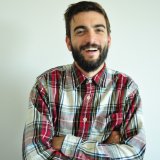 read
readinterview
Alejandro Montes
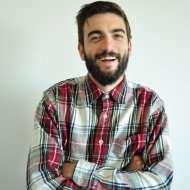
Institution
Universidad Complutense de Madrid
Major Fields of Research/Activity
educational inequalities; educational trajectories and transitions; school segregation; early school leaving; new opportunity schools
What is your role in the PIONEERED team at Universidad Complutense de Madrid? What are you currently working on within the scope of PIONEERED? I am currently developing a full-time postdoctoral research position. My main tasks include participating in the construction of the Spanish case studies, the development of the analytical design and the sample selection, the execution of the fieldwork (interviews and focus groups) and, finally, the data analysis. Additionally, I also participate in the dissemination of the results, collaborating both in the publication of papers and in attending national and international conferences.
Why do you think the PIONEERED research is important? Although in recent decades considerable progress has been made in shaping policies and programs to tackle socio-educational inequalities, the evidence reveals that there is still ample room for improvement. PIONEERED goes one step further in the current research framework. The project responds to the need to generate more research to empirically evaluate the nature of innovative and promising pioneering practices in improving equity and social justice in education.
What motivates you, personally? What or who inspired you to go into academia/research? Dedicating myself to research in the sociology of education, in general, and the analysis of educational inequalities, in particular, was a conscious and political decision. Since I was young, I have observed social injustice in my environment and that is what has motivated me to think about ways to improve the experience and expectations of others. An institution that does not prioritize equity in its perspective and does not offer improvement opportunities to vulnerable groups does not represent me.
For you, what is most challenging and/or exciting about your work in PIONEERED? Was there anything that surprised you or did not expect? It is exciting to be able to work together with researchers from up to nine different countries since it allows us to share multiple approaches and ways of understanding, conceptualizing and approaching educational inequalities. In addition, an object of study as complex as 'socio-educational inequalities', which combines multilevel and intersectional analysis dimensions, is a challenge itself. Especially when it comes to addressing its translation into specific practices.
Espen Dyngeland
Western University of Applied Sciences
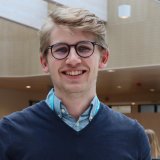 read
readinterview
Espen Dyngeland
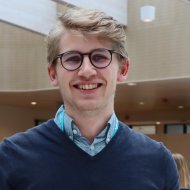
Institution
Western University of Applied Sciences
Major Fields of Research/Activity
Physical education; teaching; embodied (bodily) learning
What is your role in the PIONEERED team at Western University of Applied Sciences? What are you currently working on within the scope of PIONEERED? I am a research assistant in PIONEERED and the main part of my work is connected to WP5. I have taken part in facilitating data-collection and formulated the preliminary descriptive analysis of the different pioneering cases in WP5. After data collection, I prepared the data for analysis. In addition, I have contributed to planning the PIONEERED workshop taking place in Norway in December.
What are your goals after PIONEERED? At the moment, I am a student at HVL and currently writing my MA thesis in physical education. I am also part of Norway's first research study program for the humanities for motivated teacher students who could imagine working in academia. My goal after my stint in PIONEERED istherefore to go on to write a PhD - and hopefully start a career in academia.
For you, what is most challenging and/or exciting about your work in PIONEERED? Was there anything that surprised you or did not expect? The best thing about working in PIONEERED is the sense of ownership and responsibility I feel within the team at HVL. Every member at every meeting is encouraged and expected to contribute. For me being an assistant (and student), these experiences are priceless. I have learned alot from having my own responsibilities within the project. Having my own ideas being heard and taken seriously, and actually seeing them materialize has been a great experience.
Carlos Alonso Carmona
Universidad Complutense de Madrid
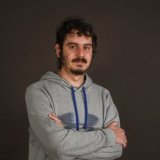 read
readinterview
Carlos Alonso Carmona
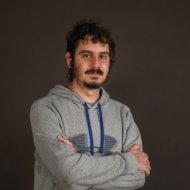
Institution
Universidad Complutense de Madrid
Major Fields of Research/Activity
family-school relationships; parental involvement in schooling; educational inequality; qualitative methods; higher education
What is your role in the PIONEERED team at Universidad Complutense de Madrid? What are you currently working on within the scope of PIONEERED? I have been linked to the project at the Complutense University of Madrid first as a Research Assistant and then as a Postdoctoral Fellow. My tasks are very varied. I have played an important role in the writing of the reports related to WPs 2 and 3 and am currently working on the fieldwork tasks related to WP5, both in data collection and analysis.
Why do you think the PIONEERED research is important? I believe that in the field of education, there is an unacceptable gap between academic activity and the implementation of public policies. The PIONEERED project can begin to bridge this gap. In that sense, I like the project's emphasis on dissemination activities beyond the world of research. I also think that the theoretical approach is very good in aiming to overcome some weaknesses of previous analyses of educational inequalities.
What does it mean to you to be part of the PIONEERED project? The PIONEERED project has been extremely important for my recent professional career. On the one hand, it has allowed me to work with a high-quality team in a prestigious institution such as UCM. My involvement in a European-level project was key to my current postdoctoral position. On the other hand, the project will help me to internationalise my research profile, thanks to the contact with teams from other universities.
What are your goals after PIONEERED? Starting to work at UCM has given me the opportunity to get involved in other research projects, although they are still in their infancy. I have committed myself to participate in a research project on school segregation. I also plan to join a team that is analysing the implementation of the baccalaureate of excellence in Madrid and its impact on the local education system.
What motivates you, personally? What or who inspired you to go into academia/research? My decision to go into research had a lot to do with my awareness of educational inequalities. As a good student from primary school onwards, I had always conceived of success at school in purely individual terms. As a sociology student, I learned about the social determinants of achievement and became interested in the notion of cultural capital. I did a final project on the subject, and was offered to continue the research at doctoral level.
For you, what is most challenging and/or exciting about your work in PIONEERED? Was there anything that surprised you or did not expect? One of the things I find most annoying about the project (and academic life in general) is the "paperwork". I understand that the horizontal coordination of many and very heterogeneous teams generates a lot of bureaucratic work, but I think it can be paralysing at times.
What advice would you give to aspiring researchers? It is difficult, but it is very important to have a long-term vision, not to close any door and to learn to accept rejections and disappointments. An academic career is a long road, and the more advantages you accumulate in the early stages, the easier the journey will be. Sometimes, the rush and stress of solving everyday problems prevent us from thinking about what is best for the future.
Kevin Simoes Loureiro
University of Luxembourg
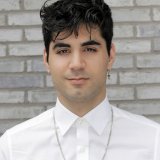 read
readinterview
Kevin Simoes Loureiro
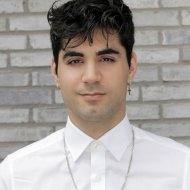
Institution
University of Luxembourg
Major Fields of Research/Activity
Multilingual education system; plurilingual education policy; educational policy implementation; educational inequalities; early childhood education and care
Why do you think the PIONEERED research is important? PIONEERED is important as it focuses on identifying pioneering practices rather than best practices and considers differences on an individual, institutional, and societal level within and between countries. While best practices typically do not consider the implementation within a complexity of inequalities on the mentioned levels, pioneering practices aim to inspire the search for customised practices to local inequalities in different educational sectors and at various stages.
What are your goals after PIONEERED? My goal is to continue in academia after completing my PhD, find a postdoctoral position in the field of education, and be involved in further international collaborative research projects that aim to provide policy and practice recommendations to tackle educational inequalities successfully.
What motivates you, personally? What or who inspired you to go into academia/research? Having had the opportunity to work as a student assistant on an international collaborative research project during my MA studies enabled me to experience the multifaceted world of academia for the first time. During my PhD studies, the analysis of a topic that is increasingly becoming important but is yet under-researched also showed me what impact research can have on a societal and political level, which inspired me to want to pursue an academic career in the future.
Radvilė Bankauskaitė
Public Policy and Management Institute (PPMI)
 read
readinterview
Radvilė Bankauskaitė

Institution
Public Policy and Management Institute (PPMI)
Major Fields of Research/Activity
Inclusive education, labour market, migration
Why do you think the PIONEERED research is important?
The PIONEERED project explores vulnerabilities in the education system and various innovative ways to address them in different contexts to identify successful pioneering practices. The project results are envisioned to feed into policy making and will hopefully inform the daily work of practitioners in the education field, resulting in more inclusive education systems. This makes the project very relevant and important.
What does it mean to you to be part of the PIONEERED project?
I perceive being part of the PIONEERED project as a great opportunity to learn and make an impact. I am exchanging ideas with researchers focusing on education topics in different countries, so I learn a lot not only about the Lithuanian education system, but also about how education is organised in different countries in Europe. Moreover, being a part of the project allows me to contribute to research that has the potential to significantly benefit educational practitioners and students.
For you, what is most challenging and/or exciting about your work in PIONEERED? Was there anything that surprised you or did not expect?
The PIONEERED project includes a lot of fieldwork and communicating with different stakeholders in the education system, which is always very interesting and exciting. This is also a great opportunity for young researchers like me to learn more about different specificities of the education system in Lithuania. I was positively surprised to learn how many education practitioners are motivated to address vulnerabilities in the education system and how creative some of them are in their work.
Borbála Lőrincz
TÁRKI Social Research Institute
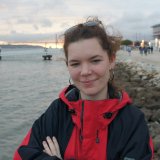 read
readinterview
Borbála Lőrincz
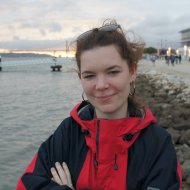
Institution
TÁRKI Social Research Institute
Major Fields of Research/Activity
Education of ethnic minority and low-SES (Socioeconomic status) children, teachers, school segregation
Why do you think the PIONEERED research is important?
I believe PIONEERED is important because it does not stop at finding out what is not working. Focusing on practices and policies that challenge the current worrying trends of educational inequality, PIONEERED promises to introduce potential future pathways for researchers, stakeholders and policymakers alike. Moreover, the conceptual framework of the research helps us carry out this task from an internationally comparative perspective.
What does it mean to you to be part of the PIONEERED project?
Educational research can often feel like a Sisyphean task in a country where policy recommendations of experts have been in large part ignored by decision-makers for a significant amount of time. Being part of an international collaboration like the PIONEERED project is refreshing and inspiring. It is easier to look at local issues with a different eye, and to see them in a more systemic way.
What are your goals after PIONEERED?
While participating in PIONEERED, I am also completing my PhD about teachers working in segregated schools in Hungary. In the long run, I see my working life shared between research and fieldwork. I already find that my past experience in the NGO sector with vulnerable children has helped me enormously to ask the right questions as a researcher and to approach stakeholders with a sense of understanding. I would like to continue on that path and let both areas of my work inspire each other.
What motivates you, personally? What or who inspired you to go into academia/research?
I chose to study sociology in the first place because I wanted to do something against the injustice and exclusion suffered by Roma people in Hungary, especially those living in poverty. While there are many ways to work against oppressive power structures, I chose academia because I thought I first have to deeply understand what is happening in order to be able to change it. Moreover, I enjoy the process of research: reading, asking questions and finding ways to answer them.
For you, what is most challenging and/or exciting about your work in PIONEERED? Was there anything that surprised you or did not expect?
The most challenging and exciting part of PIONEERED for me is exploring the differences and similarities between the participating countries. I often find that our realities are quite far away from each other, until I learn that there are numerous points where we share parallel experiences.
What advice would you give to aspiring researchers?
Most importantly: stay in touch with the field! I believe that real, passionate interest in the subject matter is essential to keep a researcher moving. Research can get pretty exhausting and boring, and it requires a lot of focus on the computer, the books, the data, the numbers and words. I think we need to keep in mind why we are doing this. My work is driven by my conviction that something has to be done for our kids – I would advise everyone to find their own.